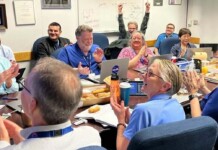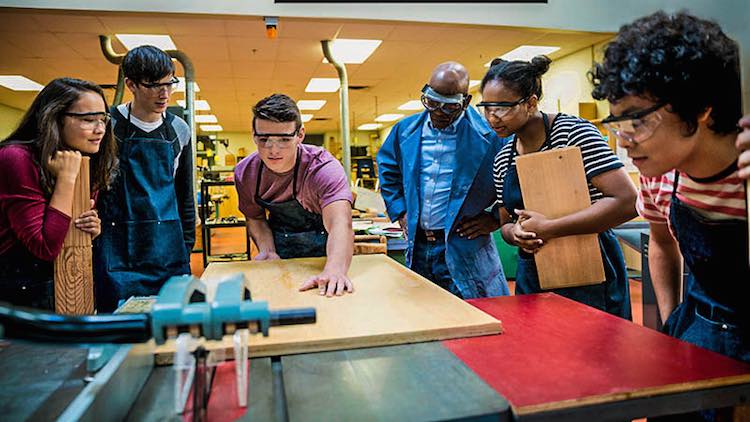JPMorgan Chase unveiled a $4 million grant last week to expand young people’s access to economic opportunity in Detroit. Building on the firm’s $100 million commitment to Detroit’s economic recovery, this three-year grant is designed to increase dramatically the number of young people graduating from the city’s high schools with opportunities to secure well-paying, high-demand jobs. JPMorgan Chase joins the Skillman Foundation and the Ford Motor Company in this initiative to connect 10,000 Detroit high school students to career education and work experiences over the next three years.
WATCH: Lawyer Gives Full Backpacks To Every Elementary School Kid in Detroit
“Building off a model proven in other communities, the collaborative approach being taken by the city to solve tough issues is reflected in their commitment to better align education with the skills that growing business sectors need,” said Chauncy Lennon, Head of Workforce Initiatives, JPMorgan Chase.
RELATED: Students Build a Business, Transform Detroit Blight into Beauty
JPMorgan Chase’s grant will support work by United Way for Southeastern Michigan to strengthen college and career pathways for students at twenty Detroit high schools. Specifically, by expanding its Linked Learning initiative and growing its capacity to work closely with employers, United Way will work in coordination with more principals, teachers and business leaders to align career-oriented education programs – including curriculum and work-based learning – with high-demand sectors in Detroit.
CHECK OUT: Detroit High School Boy Invents Solution For Paraplegic Mom To Use Baby Stroller
Over the next three years, the grant will help 10,000 young people in Detroit earn credentials, qualifying them for career pathways and college, by focusing on several important and growing regional industries, including advanced manufacturing, health care, information technology, digital communications, engineering and public service.
Schools that are adopting a career-oriented approach using Linked Learning in Detroit include the Ben Carson High School of Science and Medicine, Westside Academy, Cody Academy of Medicine and Community Health, Cody Academy of Public Leadership, Cody Academy of Information Technology, Osborn Academy of Math, Science and Technology, Osborn Evergreen Academy of Design and Alternative, Detroit Edison Public School Academy, Mumford, Central High School and Henry Ford High School.
RELATED: 30,000 US Teens Converge on Detroit in Massive Christian Volunteer Clean-up
“When I was appointed earlier this year, I announced that one of my key areas of focus would be innovations in learning, or how we do school differently,” said Detroit Public School Interim Superintendent Alycia Meriweather. “The resources being provided to our students, thanks to this grant, will allow us to design non-traditional programs that have a strong real-life experience component.”
Detroit has the highest youth unemployment rate (30 percent) of the 25 largest U.S. metro areas, with Detroit’s lower-income African-American neighborhoods hit hardest.
MORE: How a 21-Year-Old Detroit Design Student’s Sleeping-Bag Coat Could Break The Cycle Of Homelessness
“We have a strong partnership with United Way helping prepare students in Detroit for trade apprenticeships to obtain meaningful skills and gainful employment,” says Rick Blocker, President, Metropolitan Detroit AFL-CIO. “United Way’s Linked Learning effort will allow us to expose a new generation to the construction trades and help develop a skilled workforce, which benefits the city as a whole.”
In 2016, the firm will be announcing additional grants for career and technical programs in U.S. cities with the goal of increasing the number of students, especially low-income young people, who earn meaningful postsecondary and workforce credentials that are aligned with the needs of emerging industries.
Visit their website for more information.




















